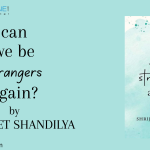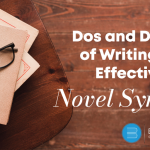Classic literature withstands the test of time, engaging readers for years. These works do more than merely tell stories; they explore the human condition, question cultural standards, and encourage contemplation. By immersing oneself in the classics, we can connect with universal themes that still resonate today.
- Pride and Prejudice by Jane Austen
- To Kill a Mockingbird by Harper Lee
- 1984 by George Orwell
- Moby-Dick by Herman Melville
- The Geart Gatsby by F. Scott Fitzgerald
- War and Peace by Leo Tolstoy
- Wuthering Heights by Emily Bronte
- Crime and Punishment by Fyodor Dostoevsky
- Jane Eyre by Charlotte Bronte
- The Odyssey by Homer
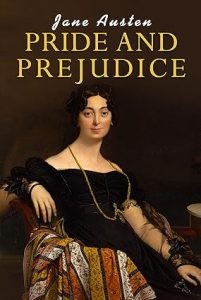
Pride and Prejudice - Classic Literature Books
1. Pride and Prejudice by Jane Austen
Pride and Prejudice by Jane Austen is a one of the classic literature books about love, class, and societal expectations in nineteenth-century England. The tale follows Elizabeth Bennet and Mr. Darcy as their initial biases and misunderstandings transform into mutual respect and devotion. The novel, known for its wit, sharp social commentary, and distinctive characters, is still considered a cornerstone of English literature, renowned for its examination of personal growth and the transformational power of love.
You may also read: List of Top 10 Nikita Singh Books of All Time

To Kill a Mockingbird - Classic Literature Books
2. To Kill a Mockingbird by Harper Lee
Harper Lee’s iconic work To Kill a Mockingbird is set in the racially segregated American South of the 1930s. It follows Scout Finch, a small girl, while her father, Atticus Finch, defends a Black man wrongfully convicted of assaulting a white woman. The book delves into themes of racial injustice, morality, and empathy, providing insightful societal criticism. It was published in 1960, earned the Pulitzer Prize, and is now considered a classic of modern American writing.
You may also like: Audible Titles vs Physical Books: Which One is Better for You?
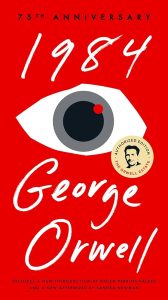
1984 George Orwell - Classic Literature Books
3. 1984 by George Orwell
George Orwell’s dystopian novel 1984 delves into subjects such as authoritarianism, surveillance, and individual freedom. Set in an authoritarian regime-ruled society, the plot follows Winston Smith, a man dealing with harsh societal control and twisted truth. Orwell criticizes authoritarian government, showing how propaganda and technology can crush dissent. 1984, published in 1949, is still a powerful warning about abandoning personal liberty, resonating strongly with contemporary issues about privacy and government overreach.
You may also read: What is Dramatic Irony in Literature? Definition, Examples and Tips
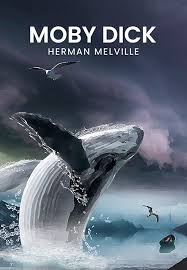
Moby Dick - Classic Literature Books
4. Moby-Dick by Herman Melville
Herman Melville’s iconic American novel Moby-Dick was released in 1851. It relates the story of Captain Ahab’s obsessive pursuit to hunt the white whale, Moby Dick, which represents humanity’s conflict with nature and fate. The work delves into issues of revenge, identity, and existentialism while combining adventure, intellectual reflection, and rich symbolism. Despite initially receiving negative reviews, it is now regarded as a masterpiece of American literature and a cornerstone of marine storytelling.
You may also read: 10 Best Books on Writing Every Author Should Read
You may also read: 150+ Positive Words That Start with O to Brighten Your Vocabulary
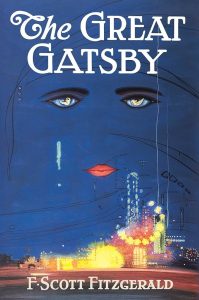
The Geart Gatsby - Classic Literature Books
5. The Great Gatsby by F. Scott Fitzgerald
The Great Gatsby, by F. Scott Fitzgerald, is one of the classic literature books, American novel set in the Roaring Twenties that explores themes of money, love, and the American Dream. The plot, narrated by Nick Carraway, is around Jay Gatsby, a mysterious millionaire who is obsessed with Daisy Buchanan. The work dives into the decadence and moral degeneration of the age, highlighting Fitzgerald’s lyrical style and piercing social analysis, making it a timeless masterpiece of American literature.
You may also read: Aravind Adiga Books of All Time | BlueRoseOne
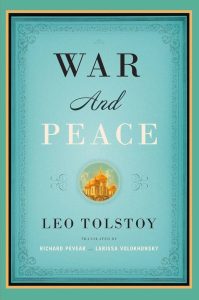
War and Peace - Classic Literature Books
6. War and Peace by Leo Tolstoy
War and Peace by Leo Tolstoy is a literary masterpiece that follows the lives of Russian nobility during the Napoleonic Wars. Published in 1869, this epic delves with themes of love, battle, family, and destiny. Tolstoy expertly mixes personal experiences and historical events, providing a profound reflection on human experience and societal evolution. War and Peace, known for its deep character development and sweeping plot, is still one of the most acclaimed works of global literature.
You may also read: How to Avoid Plagiarism in Assignments: 10 Easy Steps
You may also read: Archangels Names List: Meanings, Powers, and Symbolism
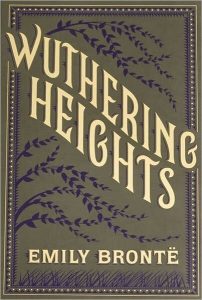
Wuthering Heights - Classic Literature Books
7. Wuthering Heights by Emily Brontë
Emily Brontë’s gothic novel Wuthering Heights portrays Heathcliff and Catherine Earnshaw’s turbulent romance. Set on the desolate Yorkshire moors, the novel explores themes of love, obsession, vengeance, and social status. Brontë’s story is a haunting and unforgettable classic of English literature, challenging societal standards and exploring the destructive power of passion through complex characters and a dark, atmospheric atmosphere.
You may also read: Dynamic Characters: Definition, Examples and Tips to Write Them
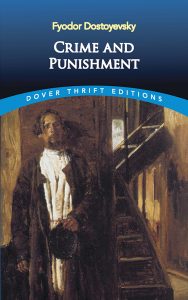
To Kill a Mockingbird - Classic Literature Books
8. Crime and Punishment by Fyodor Dostoevsky
Fyodor Dostoevsky’s “Crime and Punishment” delves into the inner agony of Rodion Raskolnikov, a former student who commits murder, feeling he is above moral law. As he struggles with guilt, paranoia, and philosophical quandaries, the narrative dives deeply into topics of morality, justice, and redemption. Dostoevsky’s dramatic character analysis and exploration of the human conscience make this classic a thought-provoking look at crime, punishment, and spiritual enlightenment.
You may also read: Top 15 Short Novels to Read in a Weekend
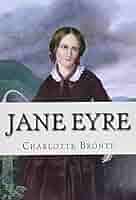
Jane Eyre - Classic Literature Books
9. Jane Eyre by Charlotte Brontë
Charlotte Brontë’s Jane Eyre is a Gothic tale about an orphaned girl named Jane who tries to discover love and freedom. Set in nineteenth-century England, the novel delves into questions of morality, social status, and gender norms, with Jane’s development as a strong, self-respecting woman at its center. The narrative is also well-known for its psychological and emotional depth, particularly in the interaction between Jane and Mr. Rochester.
You may also read: 10 Tips on How to Build a Fanbase of Readers
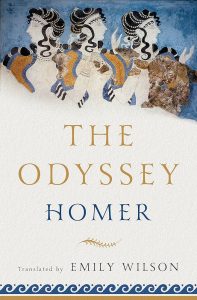
The Odyssey - Classic Literature Books
10. The Odyssey by Homer
“The Odyssey” by Homer is an epic Greek poem about Odysseus’ struggles to return home after the Trojan War. It delves into themes of heroism, loyalty, and tenacity as Odysseus faces several obstacles, including legendary beings and gods. This ageless book is regarded as a cornerstone of Western literature, influencing storytelling through complex characters and a sophisticated narrative structure. Its enduring legacy continues to inspire readers around the world.
You may also like: Literary Elements: A Complete List of Powerful Literary Devices
Conclusion
Dive into these timeless classic literature boooks to explore places where creativity meets wisdom. Classics broaden your viewpoint and pique your interest, demonstrating that great stories never get old.








